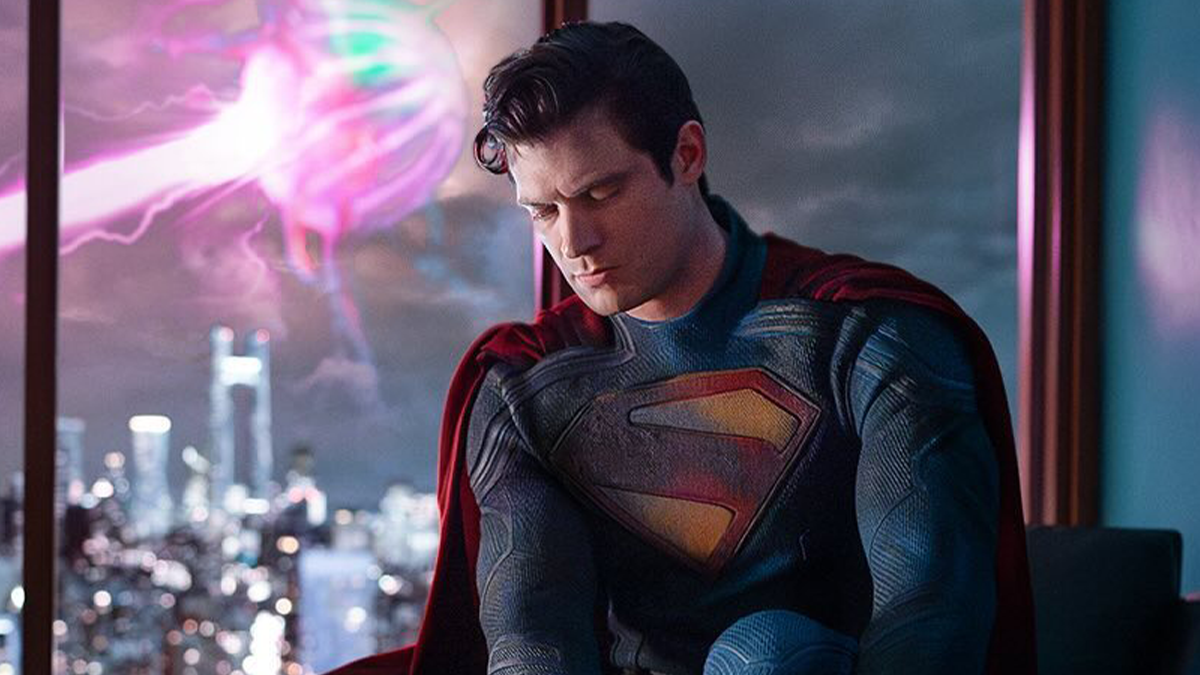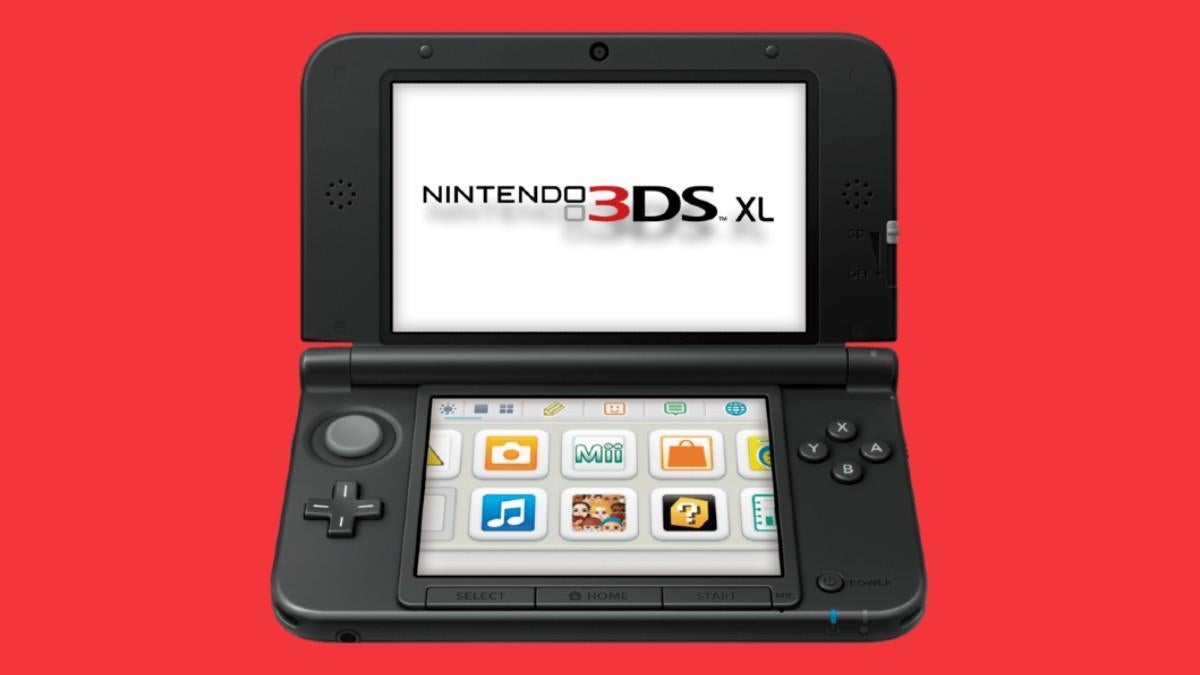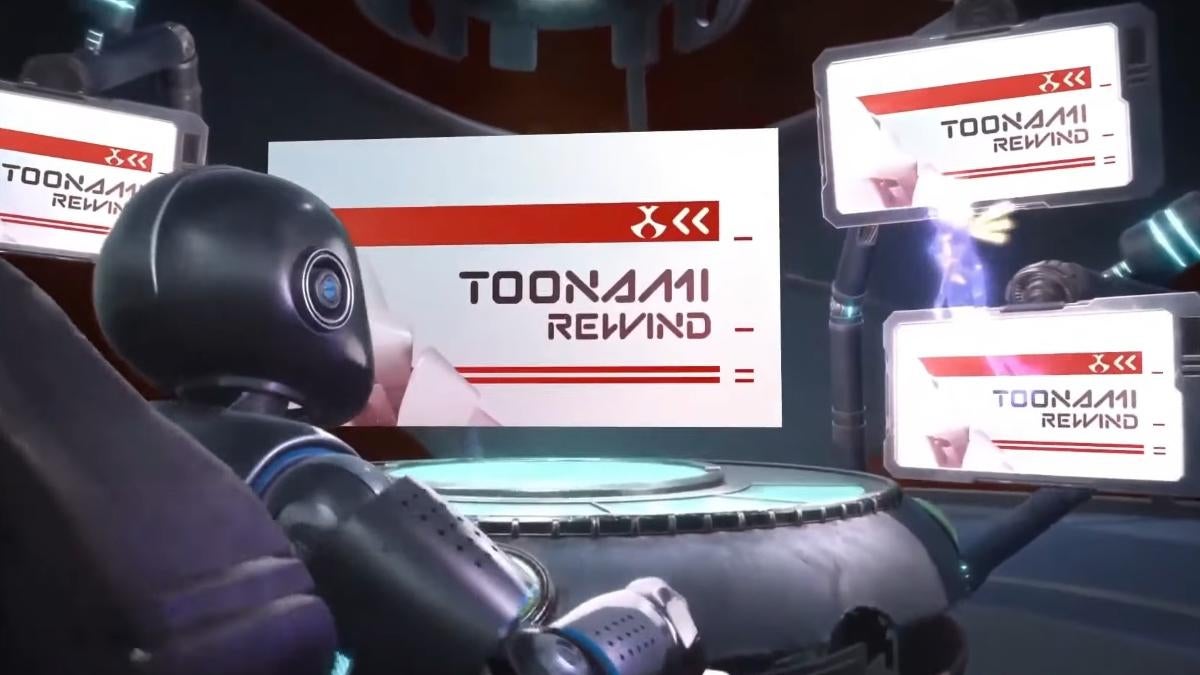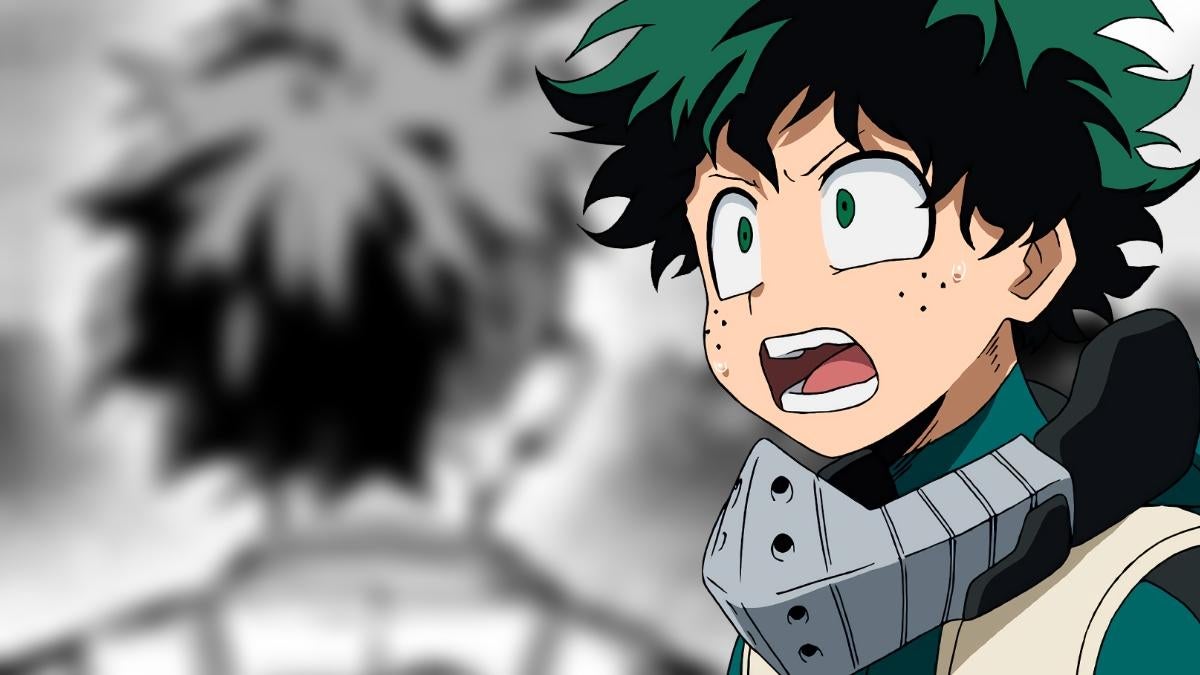Jurassic World: Chaos Theory Showrunners Break Down the Camp Fam's Surprising Return
Scott Kreamer and Aaron Hammersley shed light on Netflix's Camp Cretaceous sequel.
jThis weekend brings the launch of Netflix's Jurassic World: Chaos Theory, the latest extension in the ever-sprawling Jurassic franchise. Set several years after the events of the fan-favorite animated series Jurassic World: Camp Cretaceous, Chaos Theory follows the "Camp Fam" — Darius Bowman (Paul-Mikél Williams), Ben Pincus (Sean Giambrone), Sammy Gutierrez (Raini Rodriguez), Yasmina Fadoula (Kausar Mohammed), and Kenji Kon (Darren Barnet) as young adults, as they must rejoin forces to investigate a shocking event tied to one of their own.
Now that the first season of Jurassic World: Chaos Theory is out into the world, ComicBook sat down with showrunners Scott Kreamer and Aaron Hammersley to break down the show's debut, as well as its many twists and turns. Obviously, full spoilers for the first season of Jurassic World: Chaos Theory lurk below! Only look if you want to know!

ComicBook: Camp Cretaceous had such a perfect happy ending. What made Chaos Theory the right story to return with and completely shake things up?
Scott Kreamer: Well, if we were going to revisit these characters who we told this story with, with a beginning, middle, and end, then we wanted to do something different with it. You want to put your characters in places that they've never been before. And then you put on six years of this shared life, and then layer in a conspiracy thriller on top of it all. It just seemed like if we were going to do another one, we'd want to take a big swing with it, and this is where we landed.
Aaron Hammersley: I think the cool thing about this is that we got to return to the same characters. Scott found a really great avenue to take this story, and to take this story into sort of a different genre. I thought that that was sort of the most exciting part about returning to this franchise. We get to try something a little different, a bit more mature and aged up. And we get to return to our characters who, when you're on a show this long, you kind of look at them as your children or your babies.
Having covered the original show, it felt like the cast grew up before my eyes, season to season. How did it feel to work with the returning cast members on these older versions of their characters, and kind of grow the characters up along with them?
Kreamer: At the end of Camp Cretaceous, we were constantly re-recording Paul[-Mikél Williams], because his voice had changed. It was like, "Okay, let's get that again, up in your higher register." He, recently, just turned 18, and he was 12 when he started Camp Cretaceous. So I do remember when we started moving forward and they went, "Oh, well, is Paul going to be able to play 18?" Paul's voice will be fine, because he was already there at the end of Camp Cretaceous.
It's great. You become friends and they become the Camp Fam. It was wonderful to be able to come back and to meet others. Raini, Kausar, Sean, Paul[-Mikel], these are all really good actors, but they're all really quality human beings too, and watching them grow up and watching their careers and everything, it's been very cool. I'm on a text thread with all of them, but I know there's one without me, because I am sort of the dad. So yeah, it's great. It's great to get to work with super talented people, who work really hard, who you like a lot.

Going off of that, what was it like to work with the new voice actors for Brooklyn and Kenji, and bring them into the fold as well?
Kreamer: Initially, we were hoping everyone could come back, but we were able to find really, really great actors to come in and do that. Sure, you wish they sounded exactly like [before]. You have all these things, but at the end of the day, you want actors who give great performances grounded in real emotion. We just hit it out of the park. Hats off to our casting department, because couldn't be happier.
Hammersley: And to the Brooklyn and Kenji of it all, I feel like the big thing was that we found actors who, it might not be exactly verbatim the same voice or soundalike, but they embody the characters well. That was the most important thing, I think, to us.
Kreamer: Absolutely. These characters, six years later. It all seems to work.
You mentioned this new series almost being in a completely different genre from Camp Cretaceous. Were you worried at all, when getting into the darker themes, that it might be too much of a shift for the younger viewers?
Kreamer: Honestly, I don't want to say we disregarded the audience, but this just seemed like, if we're going to do more of this, this was the show we wanted to do. In the way that kids who watch the first Harry Potter movie grew up with the franchise, so by the time we're at the end and it is darker, we kept [that] in our mind. And also, let's face it, kids are watching darker stuff than when Aaron and I were kids. But yeah, that was the hope, that you have this audience that would come along and grow up alongside of our characters. And then, hopefully, start bringing a new audience who maybe is looking for something darker and grittier, like we were.
Hammersley: Also, we have this string of Jurassic films and tonally, they all fit in a pretty similar space. I think this afforded us an opportunity to sort of branch out and try something that we haven't seen before in this franchise. The elements that we had, with the components that we were playing with with this story, really lent itself to that mystery, sort of political thriller vibe and tone that we'd set. So it was kind of cool that we found this opportunity. It's not a total deviation, but enough of a departure that I think people are going to notice it.

There's some really fascinating bits of world-building in Season 1, from dino immersion therapy to the dark web forums. What were you most excited to help contribute, especially considering where the show fits in the larger timeline?
Kreamer: I sound like a broken record: Everything always starts from our characters. So, when we were imagining what the characters are like six years later. It's the chicken and the egg, the characters came first. Ben was not believing about what's going on with Brooklyn, and maybe he's gone down the rabbit hole a little bit. A website like Dark Jurassic felt like a no-brainer, as far as him chasing conspiracy theories onto the dark web, and everything like that. And in the same way, we followed Yaz from the trauma she suffered at Camp Cretaceous, and we had always imagined she'd go on into psychology to help kids or something like that. We were just kind of like "Well, how would Yaz deal with it? How would Yaz try to help other people with it?" So that kind of led us into the dinosaur immersion therapy. So yeah, it all started with the characters, and that's where the world started to get bigger, as we started really figuring out what this thing was going to be.
Hammersley: The thing that was most exciting to me about this was, because we had more time and we were sort of slow rolling the story... Scott and I talk about this quite a bit. The films give you sort of a bird's eye view of all of these big events, but our show got to take this story and show it from the ground floor, and see it from a more intimate perspective. And to me, the fun part was sort of thinking through "Okay, well what would it actually look like if there were dinosaurs roaming about?" It's the footprints on the street or on the road, the dinosaur sleeping at the gas station, the convoy of dinosaurs being transported across the country. It always was us trying to find "How would this really look? What would this look like if you were just like Joe Schmoe living in the middle of the country coming upon dinosaurs?" I think that was sort of a fun exploration for us.
Kreamer: When I was figuring out the pilot, just the stuff on the radio. You just start imagining, "There's going to be some talk radio guy who's looking for someone to blame. There's going to be some ambulance-chasing attorney who's going to be wondering, how can I make a buck that there's dinosaurs here?" One of the fun things about what we get to do, is you can just kind of let your imagination run wild, and go put yourself in the shoes of the characters. What would a world look like? You can't hit everything, but you do what you can to make it feel like a real world.
What elements of their new status quos and their relationships with each other were you most excited to explore?
Kreamer: The first thing that comes to mind is Sammy and Yaz. They were kids on the island, and they needed each other. But again, no one's the same at twenty as they were at fourteen, and that was without fighting for your life every day against dinosaurs. What does that relationship look like, as you get older and start becoming more of the person you're going to become? Again, we always want to put people in situations. We wanted to see the characters in places and feelings that we hadn't seen them before. What does a poor Kenji look like? What is a Sammy, who's always been pro family, and now her family and her are maybe at odds? We didn't want it just to come and [decide] everyone's life is terrible now. But again, we didn't want it just to pick up and like, "Well, everything's great. We'll fight the bad guys together." There's the mystery and the danger and the intrigue and all that, but also we really love the idea of digging into putting this family back together. And we didn't want it to come together wrapped in a bow. People change, and what does that look like when you start here, and now you're not as in contact, and you end up here? What does that all look like?
Hammersley: In addition to that, the Brooklyn of it all was really fun for us to explore. These characters obviously are coming back together, and having to be confronted with the feelings and everything that happens, the trauma and the grief that you deal with after losing someone close to you. I think the really interesting part about it was that, as they're discovering, learning new bits and pieces about what Brooklyn was doing, all of a sudden your character... Someone who's deceased, you often turn them into a saint, but this character is no longer looked at as a saint. There's this sort of moral gray area that, obviously, she was dabbling in. And I think that's kind of the most fun that we got to have was taking a character that was a very popular character from Camp Cretaceous that people really loved and then sort of casting Brooklyn in a new light. I think was sort of the most fun element to me.

Jumping ahead to Brooklyn: were you always planning on bringing her back, and what can you tease about what you hope to explore with bringing her back?
Kreamer: Yeah. The plan was always to bring her back, but we didn't want to do the cartoony thing where like, "Oh, there was some blood and she was missing." obviously there's already a ton of people on the internet going, "They wouldn't do that, would they?" Or would they? When we were kicking around ideas like "How can we make the stakes feel real, but still bring her back?" We were banging our heads against it and our supervising producer said "What if she loses a part of her arm? What if she loses her hand?" And then we started thinking about it and all right. That raises the stakes. They haven't done that. They haven't had a heroic character in Jurassic get injured significantly by a dinosaur, and it just felt like a great way to go.
Obviously, you want to find out what Brooklyn was up to. You want to know, delve more into that story. What's that like? As always, we want to tell an authentic story. So delving into the story about what led to everything, all these breadcrumbs we've left as far as what was she up to, and then her going through obviously a significant change in her life and her body. What does that look like?
Hammersley: What was really fun about this season was: you start with this mystery of "What the hell is happening?" And we start to answer some of those questions, but then, when you get to the very end and she's still alive. It opens up a whole other slew of questions. I think that, obviously, that's the thing we were hoping to do is pose new questions for the audience. What was she doing? What is she still up to? And what are we going to learn about her now?
Kreamer: Yeah, and if she's alive, why didn't she tell anyone? She's keeping track of what's going on, so why is she keeping it all a secret?
Given how long Camp Cretaceous did run, and the fact that there are more movies on the horizon, do you envision Chaos Theory having as long of a tenure and running for multiple seasons?
Kreamer: Well, we got plenty of story to tell. I don't know if it'll run as long as Camp Cretaceous did, but obviously where we are in the timeline, we definitely have more story that we're excited to explore.
Hammersley: I have nothing to add.
***
The first season of Jurassic World: Chaos Theory is now available to stream exclusively on Netflix.




